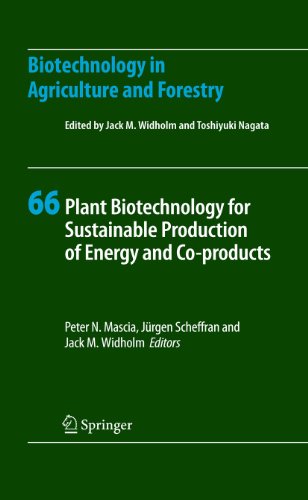

Most ebook files are in PDF format, so you can easily read them using various software such as Foxit Reader or directly on the Google Chrome browser.
Some ebook files are released by publishers in other formats such as .awz, .mobi, .epub, .fb2, etc. You may need to install specific software to read these formats on mobile/PC, such as Calibre.
Please read the tutorial at this link: https://ebookbell.com/faq
We offer FREE conversion to the popular formats you request; however, this may take some time. Therefore, right after payment, please email us, and we will try to provide the service as quickly as possible.
For some exceptional file formats or broken links (if any), please refrain from opening any disputes. Instead, email us first, and we will try to assist within a maximum of 6 hours.
EbookBell Team

5.0
40 reviewsThe successful use of plant biomass for the sustainable production of energy and co-products such as chemicals is critically important for the future of humanity. Large scale exploitation of biomass is needed to decrease the production of greenhouse gases and help mitigate global warming, to provide energy security in the face of declining petroleum reserves, to improve balance of payment imbalances, and to spur local economic development. This volume discusses such uses of plant biomass as well as ways to improve the productivity and composition of plant species, including trees, perennial and annual grasses, oil-producing plants and algae, that have the potential to produce substrates such as sugar, starch, oil and cell walls, as well as energy and co-product substrates. The problems of invasiveness and gene dispersal are discussed, as are ways to mitigate these. Among the topics covered are models for integrated biorefineries to produce many co-product chemicals, the use of corn stover to power ethanol plants, life cycle analysis of biofuels, and criteria for biomass sustainability and certification. This is indeed an exciting and fast-moving time for advocates of plant biomass-based technology.